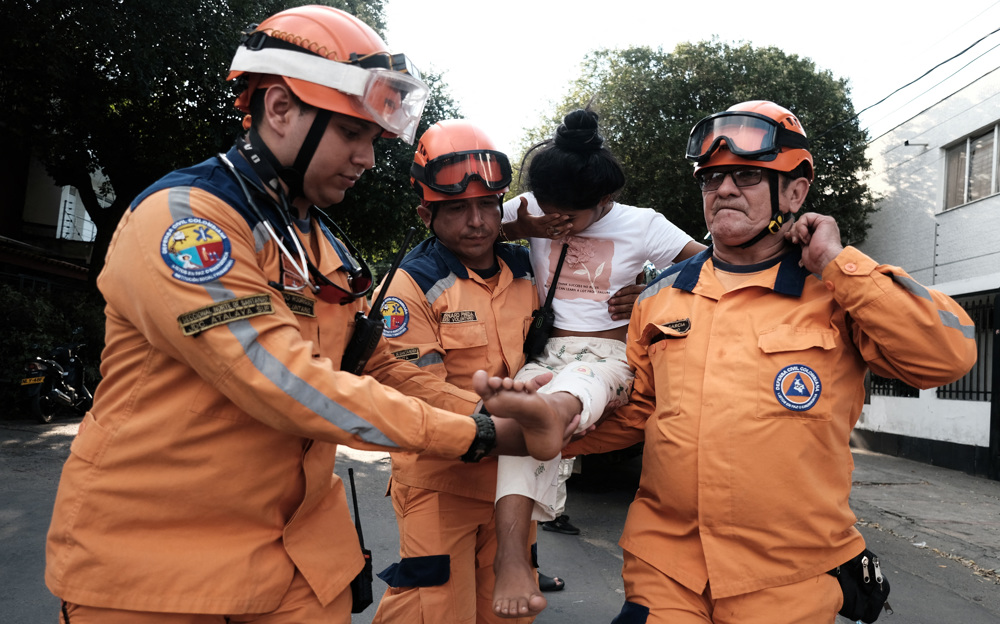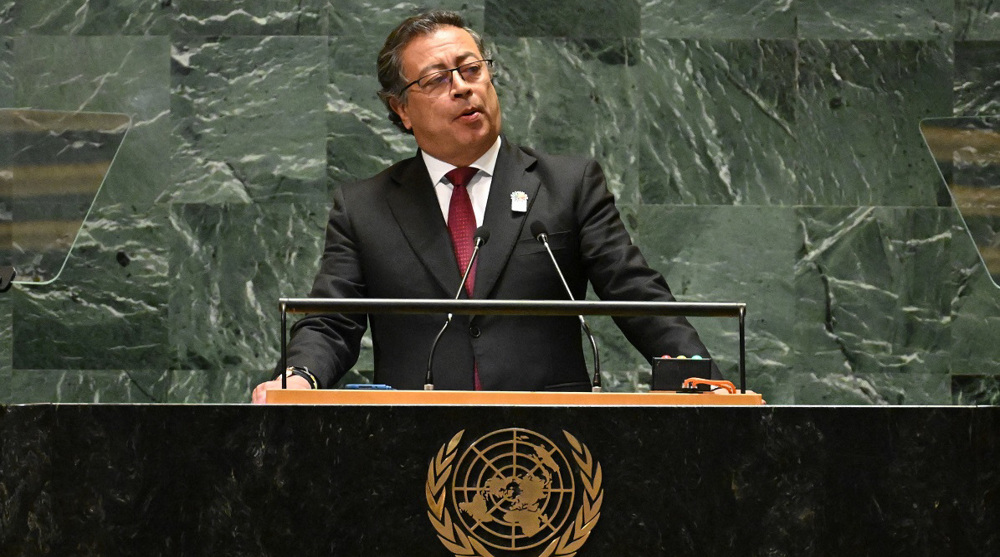Over 3,000 Colombian women infected with Zika
Colombian President Juan Manuel Santos says the mosquito-borne Zika virus has infected over 3,000 pregnant women in the South American country.
He made the comments on Saturday during a TV broadcast, stating that so far no evidence has been found that Zika has caused any cases of microcephaly in Colombia.
The Zika virus is suspected to cause serious birth defects. It is linked to microcephaly, a condition in which babies born to women infected during pregnancy have abnormally small heads and undeveloped brains.
The Colombian leader said there are more than 25,600 people with Zika infection in the country, out of which 3,177 are pregnant women.
"The projection is that we could end up having 600,000 cases," Santos added.
According to the Colombian president, the government would take necessary measures to fight mosquitoes across the country while sterilizing and helping families get rid of stagnant water in their homes.
Santos also said a medical-scientific team from the United States would come to Colombia to help investigate Zika.

Colombian officials said on Friday that the paralyzing Guillain-Barre syndrome, which is thought to be linked to Zika, has killed three people. The Colombian president said Colombia could have up to 1,000 cases of the rare neurological disorder.
Officials in Brazil believe that Zika could be behind an apparently unusual number of microcephaly cases, despite the fact that the link is not confirmed yet.
Zika has so far spread to more than 20 countries in the Americas.
The Colombian government says those pregnant women infected with Zika could be provided with abortion services.
Zika virus was first isolated from a monkey in Zika Forest, Uganda, in 1947.
Brazil has been the country hardest hit by the outbreak, where three people were reported dead due to the Zika virus in November 2015.
There is currently no specific treatment for the virus and no way to prevent it other than avoiding mosquito bites.
The affected countries are reportedly doing their best to eliminate the breeding grounds for Aedes aegypti mosquitoes, which bite all day long.

Over 80 people killed in Colombia as ceasefire between rebel groups collapses

Netanyahu a 'war criminal', President Petro tells UN General Assembly

Dropping bombs on children in Gaza and not opposing war is anti-Semitic: Petro
VIDEO | Is Turkey a friend or an enemy?
VIDEO | Iran-U.S. indirect negotiations in Oman
Diplomatic tension flares as Algeria threatens to expel 12 French officials
One year since Op. True Promise I, when Zionist entity unraveled like spider’s web
More Palestinians fall victim as Israeli forces, settlers step up aggression across West Bank
VIDEO | German Conference sheds light on Scholasticide in Gaza
Iraq warns Daesh threats ‘resurging’ in Syria
Iran petroleum minister in Iraq to discuss enhanced energy cooperation












 This makes it easy to access the Press TV website
This makes it easy to access the Press TV website